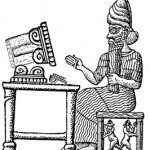Let me begin with an article in Newsweek about how Americans view Jesus: 52 Percent of Americans Say Jesus Isn’t God but Was a Great Teacher, Survey Says. The article is poorly written and poorly researched in many respects. it seems to suggest that the Bible teaches that Jesus is God, and the wording is clunky and unclear at times. But the shift in public opinion that the article draws attention to is rather remarkable.
Next, Randal Rauser tweeted about mythicism:
Imagine that only about five professional historians believed Jesus actually existed and those five historians also happened to be highly activist Christian apologists. Would anyone take them seriously? That's precisely the current situation with Jesus Mythicism.
— The Tentative Apologist (@RandalRauser) August 20, 2020
See his blog post “The Absurdity of Jesus Mythicism in Five Minutes” as well as another that relates to a common accusation of mythicists, on whether biblical scholars are constrained by institutional doctrinal statements.
Craig Keener likewise shared some thoughts on Jesus mythicism: Part One and Part Two.
On Philippians 2:6-11:
Book Review: Patrick Schreiner, The Ascension of Christ: Recovering a Neglected Doctrine
https://ehrmanblog.org/at-last-jesus-and-the-son-of-man/
Edward Feser wrote something about physics that applies just as well to history including mythicism:
There is a crucial but widely overlooked lesson here. When your basic assumptions are unsound, greater intelligence by no means guarantees that you will come to see this. On the contrary, sometimes you will end up only more hardened in error than a less intelligent person would be, because you will be able to come up with subtler fallacies and cleverer self-deceptions.
https://internetmonk.com/archive/reconsider-jesus-the-beginning-mark-11
https://internetmonk.com/archive/reconsider-jesus-from-nazareth-mark-19a
Ben Witherington shared thoughts from J. B. Lightfoot about faith, skepticism, and credulity.
An interesting post on “apocalyptic Trinitarianism” had this to say: “while the first Christians recognized the subordination of Christ to the one God (cf. 1 Corinthians 15:27-28), they expected Jesus to function as God (or to the pagans, as a god) in the eschatological context. While monotheists such as the early Christians were able to distinguish between God and God’s godlike agent, pagans would have understood Jesus as a new and more powerful god.”
Ben Kuwitzky argues that Philippians 2:10 is better translated in such a way as to convey that all will bow before Jesus because of the divine name that has been bestowed upon him:
https://academic.logos.com/questioning-the-translation-at-the-name-of-jesus-in-phil/
Emma Wasserman on Paul and Religion
Larry Hurtado on not confusing Jesus with God
Public Lecture – Jesus among the gods: Early Christology and Divine Ontologies of Antiquity
A new open access article on the divine name in Romans 10:13
Did Jesus engage in prosopological exegesis of the Jewish scriptures?
Finally, from a past blog post of mine: “I’m wrestling with…how to get people to understand this element of nuance and probability in academic study and its conclusions. It is neither the case that there is no room for uncertainty, nor is it the case in most instances that all possibilities are equal.”













